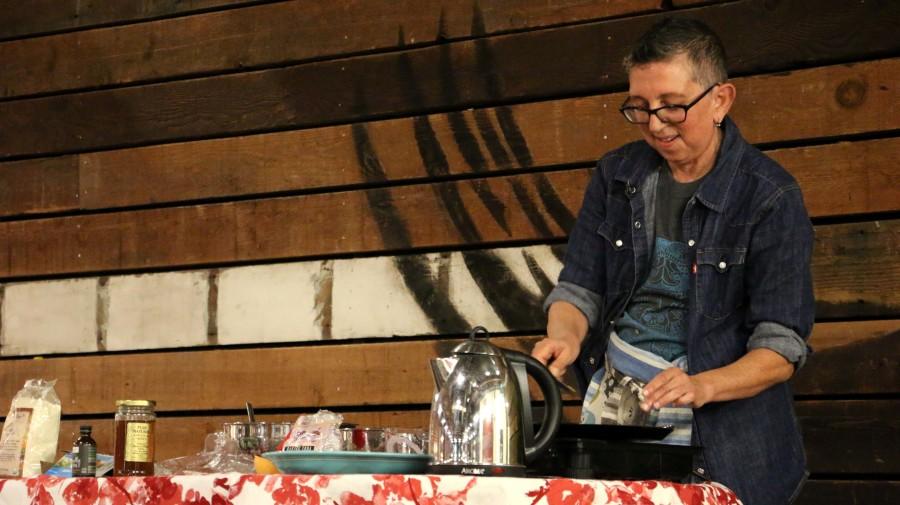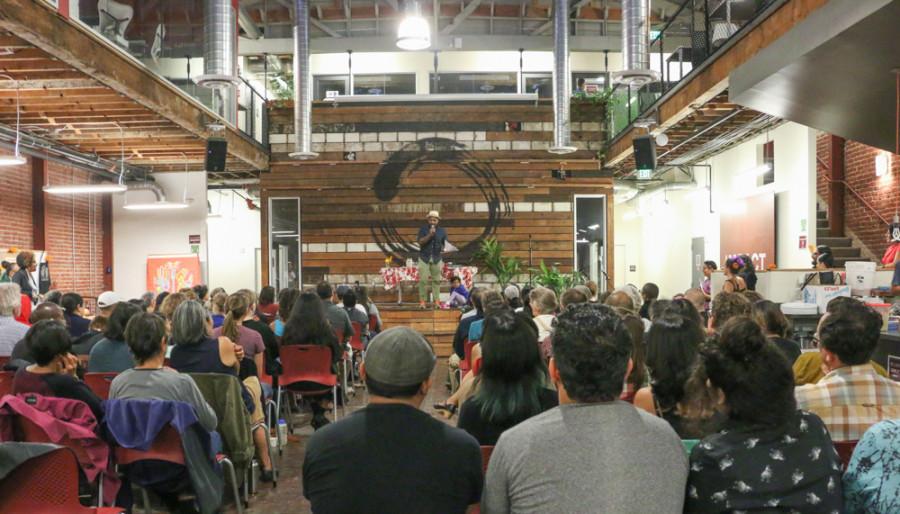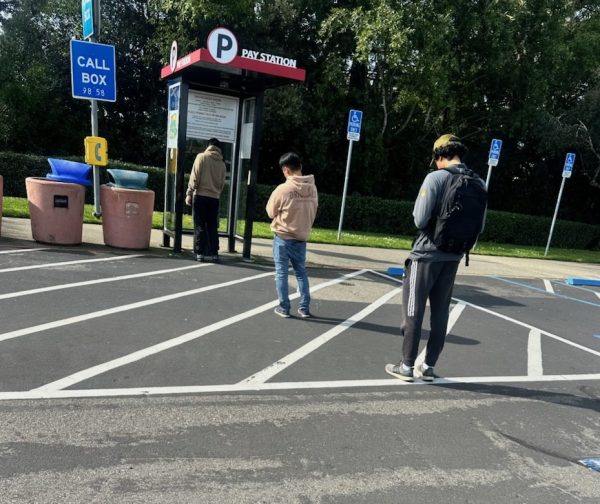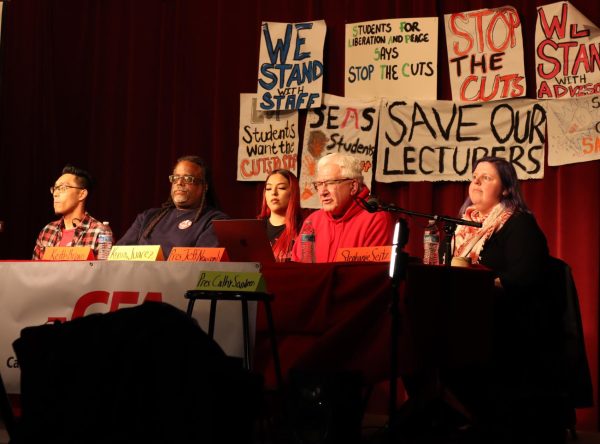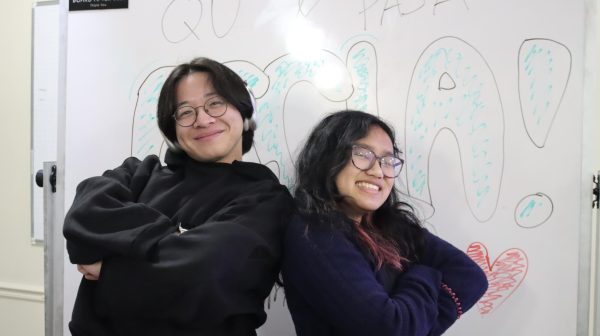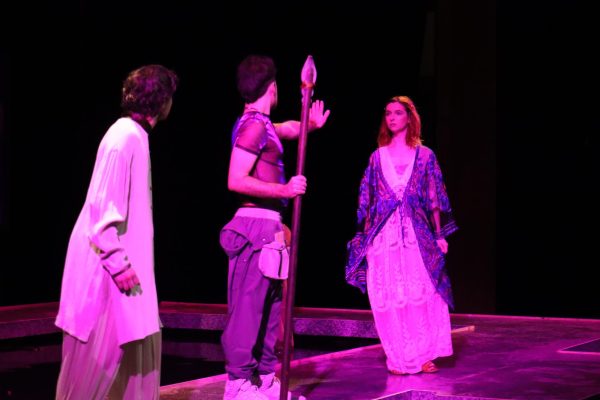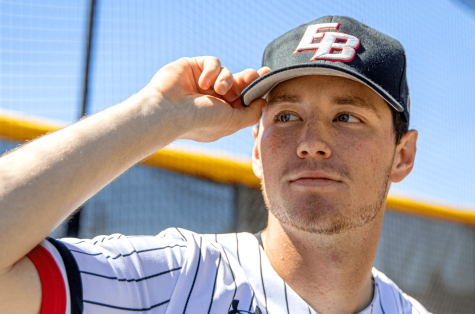East Bay professor promotes indigenous recipes
You could smell it before you entered from the street in Uptown Oakland. Once you opened the door of the Impact Hub on Broadway, the aroma of tamales wafted over you.
It was standing room only on Sunday as the Oakland Food Policy Council hosted a book release for “Decolonize Your Diet,” a cookbook written by Cal State East Bay Ethnic Studies professor Dr. Luz Calvo.
Packed in like a congregation on a Sunday morning, attendees sat and listened attentively as keynote speakers took turns at the podium to express the importance of food and the role it plays in the community.
Co-authored with partner and San Francisco State associate professor Dr. Catrióna Rueda Esquibel, “Decolonize Your Diet” consists of more than 100 vegetarian recipes on Mesoamerican dishes. Through this book Dr. Calvo wants to inspire better eating habits — habits that were charged by a 2006 diagnosis of breast cancer.
Q: What does it mean to decolonize your diet?
When we say, “Decolonize Your Diet” we are asking people to think about the enduring legacies of colonization and how that affects the food we eat. We are coming from a Mexican-origin political context, so for us, we want people to honor the amazing food history of our indigenous ancestors by eating those foods and keeping those recipes alive.
Q: What inspired your book?
So many things inspired this book, both personal and political. But the story I want to tell is about one CSUEB student, Jessika Rios. Jessika was taking several classes with me and heard me talking about cooking. She didn’t know how to cook and asked if I could teach her. I told her that I would give her one recipe a week. I started a little Facebook page, just for her. I posted the recipe of the week there. She would make it and she would bring me a small tupperware serving so I could taste it and give feedback. We started with a pot of beans, the next recipe was for lentil soup. We went on like this for a while. Eventually she asked if others could also look at the Facebook page and so we opened it up. I started posting more and more recipes and ideas about food justice. More people started to follow the page. Now the page has over 14,000 followers. But it started with one, Jessika Rios.
Q: How did food play a role in your remission from cancer?
Do you feel food is a major factor in a lot of the illnesses we face in the U.S.?
I definitely feel that food is a major factor in many illnesses in the U.S. Research shows that in the population as a whole, poor diet is a contributing factor to Type 2 diabetes, heart disease and some cancers. That said, at an individual level, no one can know for sure what combination of factors caused a particular disease. For me, once I was done with treatment, I wanted to increase my chances of not having my cancer recur. So, that’s when I started doing a lot of research on food and health. I found that growing my own food was very healing because it reconnected me to the cycle of life and the earth.
Q: What do you hope to accomplish with your book?
I want young people to value the knowledge of their ancestors.
Q: What is food justice?
Food justice is everyone having access to healthy, fresh and culturally appropriate foods that are grown/harvested/produced in ways that respect workers and the environment.
Q: Did you always have a passion for food?
I have enjoyed cooking food since I was a teenager. I love preparing meals for friends and family. Cooking is the way that I show people that I care about them. I’ve been a political person since I was young and I started to develop a political analysis of food after I read “Diet for a Small Planet” when I was in high school. It wasn’t until I was recovering from cancer that I really put it all together — the pleasure I get from cooking, the desire to eat healthy foods and the political analysis.
Q: Describe how you felt after it was completing this big project — how long did it take you to produce?
This book has been a huge project that took about 8 years to complete. We worked every summer, first on research, then on writing. In the end it was a rush to complete, because once we signed our book contract, the press only gave us three months to complete the manuscripts. The press wanted a slightly different organization and structure so we basically rewrote the entire book in 3 months. It was crazy. But it feels like, in the end, we accomplished a lot of what we set out to do in this book.
Q: What is the connection between food and people of color?
Communities of color hold great knowledge and cultural resources. Many members of our communities are able to sustain their families with homemade dishes, even with few resources.
Q: What do you think of the food students are offered on campus?
I think students on our campus deserve fresh, organic, locally grown and prepared food. It makes me sad that we don’t have access to quality food on our campus. That said, I’m glad that the Aramark works won the right to unionize. The rights of workers should also be important to our campus community.
Q: Broke college students claim they can’t afford to eat healthy. What is your response to that statement?
I encourage students to begin to cook for themselves. Buy a crock pot and start cooking beans and stews! Beans are inexpensive, nutritious, and tasty. Tacos are also a great food for students to make! When I was an undergrad, I would buy a bag of potatoes and a package of corn tortillas to make myself potato tacos for dinner. It was very inexpensive and quite tasty. I lived in the dorms though, and was always setting off the fire alarm.
Q: How do we move forward in regards to food as an individual, as a campus, as a culture and as a community?
We need to start organizing politically to have our voices heard but first we need to start talking to each other. We need to decide what is important to us and then make it happen, whether it be a community garden, a food coop or food pantries.
Q: What superpower would you have and why?
I believe in the people’s power. I still have faith that people will be able to come together to create some kind of world where everyone has basic human rights, like healthy food, quality health care and a safe place to live.


